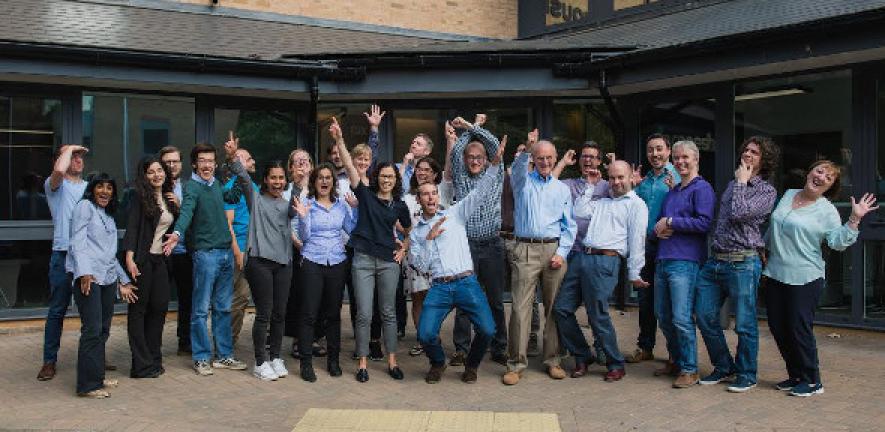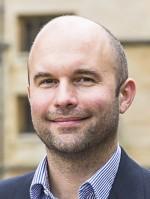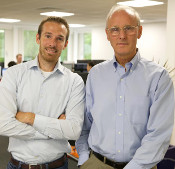
The mission of Healx Limited is "to improve the lives of rare disease patients by intelligently matching drug treatments" according to Dr Tim Guilliams. He is the company's Chief Executive Officer and an alumnus of the department who received his PhD here in 2013. "Healx has a simple but profound goal: to transform the lives of rare disease patients," he says. "Our technology helps us find treatments where none currently exist."
Tim co-founded Healx in 2014 with Dr Andreas Bender, a Reader in Molecular Informatics here, and Dr David Brown, the co-inventor of Viagra and former Global Head of Drug Discovery at Roche.
 The company uses an artificial intelligence platform called HealNet to screen drugs for their potential benefits to patients with rare diseases. HealNet uses algorithms, and other techniques originally validated in the Department of Chemistry and significantly re-written and further advanced by Healx, to analyse a wide range of biological and textual data types for potential drug-disease relationships.
The company uses an artificial intelligence platform called HealNet to screen drugs for their potential benefits to patients with rare diseases. HealNet uses algorithms, and other techniques originally validated in the Department of Chemistry and significantly re-written and further advanced by Healx, to analyse a wide range of biological and textual data types for potential drug-disease relationships.
Being able to apply these advanced computational methods on such an extensive database means the company can significantly reduce the time, cost and risk taken to find drugs which are likely to be effective in often overlooked rare diseases.
"The system allows for massively parallel, ultra-fast mining of this data, discovering potential connections and drug targets in weeks and months rather than years and decades," says Suranga Chandratillake, General Partner of Balderton Capital, which led the funding round.
"Although the technology can be used to generate entirely new suggestions for chemical compounds that may help rare diseases, Healx has focused its strategy on drug re-purposing – that is, looking at existing drugs that are already known to be safe in humans and effective in other areas, and ask if they might help alleviate symptoms other than the ones they were originally designed to target," says Suranga, writing in Medium.
"This means that when the company does target a likely drug, it has a significantly shorter, more efficient clinical trial process," he writes.
"Our proven approach is to start from existing drugs and apply artificial intelligence to niche disease populations, working with patient groups to accelerate treatment development. Our success comes from our world-class multi-disciplinary team of experts, leveraging cutting-edge artificial intelligence techniques to cut the discovery-to-treatment time from years to months," says Tim, writing on the Healx website.
The company’s use of HealNet has most recently led to clinical trials for a drug for Fragile X Syndrome. "Going forward the company will invest the Series A funding in building out more of that team and adding yet more data, public and exclusive, to HealNet, as it works with yet more patient groups and pharmaceutical companies to further research into rare disease," says Tim, who was featured in the Winter 2015 issue of Chem@Cam magazine.
Healx was selected in the global 'Disrupt 100' list 2017, covered in the Harvard Business Review, and awarded 'Cambridge Graduate Business of the Year' 2016 by Business Weekly and 'Life Science Business of the Year' 2015 by Cambridge University Entrepreneurs. The $10 million (£7.8 million) Series A funding round was led by Balderton Capital, with existing investors Jonathan Milner and Amadeus Capital Partners also participating in the round.
Image above is of the Healx team and shows Tim Guilliams (centre front) with co-founders Andreas Bender and David Brown (front row, fourth and fifth from right, respectively).
Inset left: Co-founder Dr Andreas Bender, Department of Chemistry
Inset right: Co-founders Tim Guilliams (left) and David Brown

